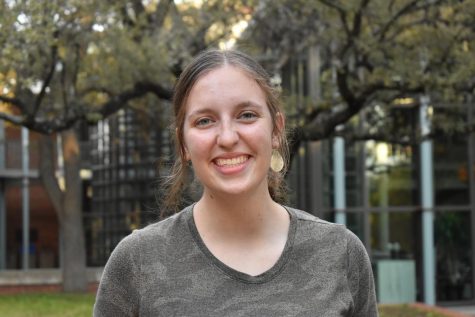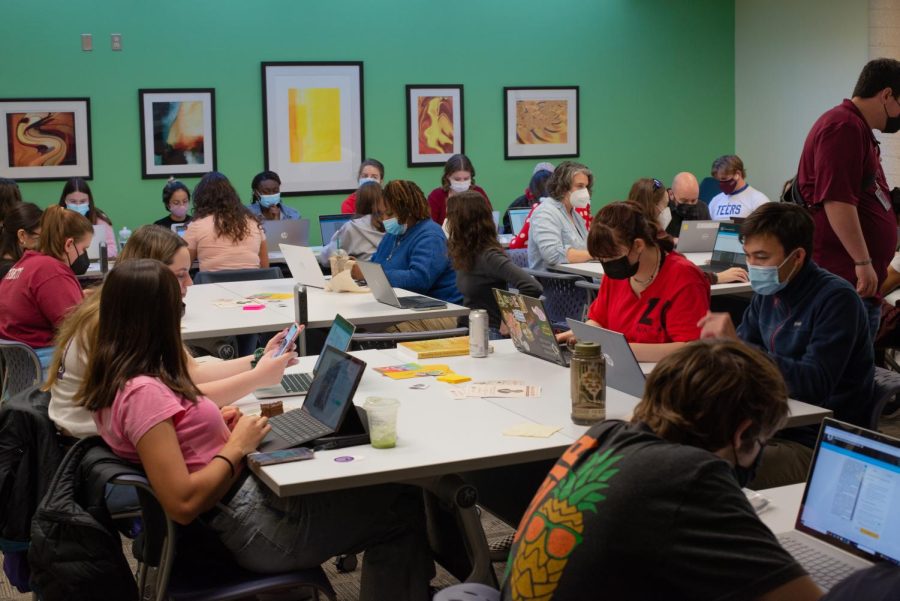Trinity University commemorates Black History Month
Douglass Day, other events celebrated in the TU community for BHM
Black History Month has historically been celebrated during February across the United States. It was officially designated in 1976 during Gerald Ford’s presidency, after decades of Black communities and college campuses holding BHM events. 48 years later, campuses like Trinity University hold different student and university-led events to commemorate.
The national theme for this year’s Black History Month is the importance of Black Health and Wellness. The Association for the Study of African American Life and History (ASALH) stresses the importance of this topic as we enter the third year of a pandemic that continues to disproportionately affect Black people and other people of color in the United States, according to the Center for Disease Control and Prevention.
“This theme acknowledges the legacy of not only Black scholars and medical practitioners in Western medicine, but also other ways of knowing (e.g., birth workers, doulas, midwives, naturopaths, herbalists, etc.) throughout the African Diaspora,” according to the ASALH website.
Demitrius Brown, Dean of Students, noted that Trinity has a unique responsibility to support Black health and wellness as students begin taking control over their own wellbeing. This topic not only takes root on an individual level, he said, but on institutional and systemic levels as well.
“Students are learning more about what they individually want and need to be healthy individuals,” Brown said. “I think that’s just an important piece of this narrative that we [have to] make sure we maintain, and that we understand our students are learning more and more each day, each year about their own bodies, their own minds, their own hearts and what they need to thrive.”
At Trinity University, the events planned for the month focus on Black History as a whole as well as the month’s specific theme. One of the major events was the Douglass Day nationwide transcribe-a-thon, honoring Fredrick Douglass’s chosen birthday of Feb. 14. The Douglass Day event was attended by students, staff and faculty, as they worked to transcribe all sorts of documents for the Colored Conventions Project, the longest campaign for civil rights of the 19th century.
According to the Colored Conventions Project, “CCP uses innovative, inclusive partnerships to locate, transcribe, and archive the documentary record related to this nearly forgotten history and to curate engaging digital exhibits that highlight its significant events and themes.”
Claudia Stokes, an English professor and member of the TU Humanities Collective’s advisory board, spoke about how Trinity participated in Douglass Day.
“We were really thrilled, we had at least 50 people come… we had a really great mix of students: lower-division students, first-year students, seniors, just a whole range of students across departments and majors,” Stokes said. “We also had a lot of faculty come, faculty from lots of different disciplines… It was a nice representation of the Trinity community.”
Attendees transcribed 19th-century documents and searched for names of Black women who worked toward abolition, equality and the right to vote. The TU Humanities Collective, which promotes the “humanities in action,” organized the Douglass Day event.
“The Humanities Collective is committed to the mission of the humanities, we’re committed to affirming to our students, to the community, to parents the importance of the humanities and this provided a really wonderful opportunity for students to have a hands-on experience with primary historical documents. And to recognize that history is not monolithic and settled, that the work of history is ongoing,” Stokes said. “It was an opportunity for our students to recognize that so much of American history has deliberately excluded the histories and experiences and the voices of marginalized peoples, especially, you know, Black Americans.”
Beyond Douglass Day, Trinity’s Black History Month schedule of events also included “A Diversity Dinner Event; Representation: Refreshing or Ridiculous?” hosted by the Student Diversity and Inclusion Office. The event was held on Feb. 23 and focused on discussions about BIPOC representation in films.
The Black Essence Festival hosted on Feb. 25 in the Calgaard Gymnasium provided the TU community with opportunities to learn and interact with Black history, as per the event description.
Although these events are concentrated within Black History Month itself, Brown said the momentum doesn’t stop there. There are opportunities every day to extend months designated for awareness of certain groups.
“I think one of the hugest things is to look at who you spend your time with and how, and ask yourself on a day-to-day basis, ‘am I limiting myself to just a small group of people?’” Brown said. “It might be your friendship circle. It makes a lot of sense. They may be your rocks, your guides. But are you engaging with the people sitting next to you in class? Do you know more than their name?”
According to Stokes, Trinity’s celebration of Black History Month is important and necessary.
“I would really like to see Trinity really amplify its contributions to Black History Month. And I feel like, frankly, every month is Black History Month,” Stokes said. “My area of research is 19th century American literature. And so, in my field Black literature in American literature, Black history is American history… It’s important to remember that every month should be Black History Month.”
Additional reporting was done by Logan Crews.

Hello, y'all! I'm Abby Power, and I am a sophomore news reporter from Kyle, Texas. I intend to major in Political Science, Spanish, and Global Latinx Studies....

My name is Ashley Allen and I am a senior completing a BA in art history at Trinity University, with a minor in Medieval and renaissance Studies. I hope...









